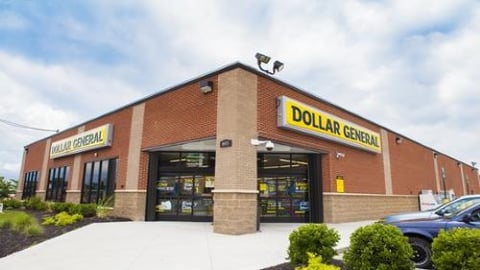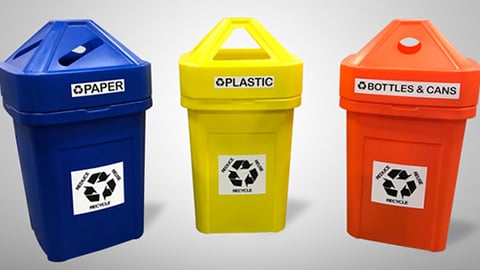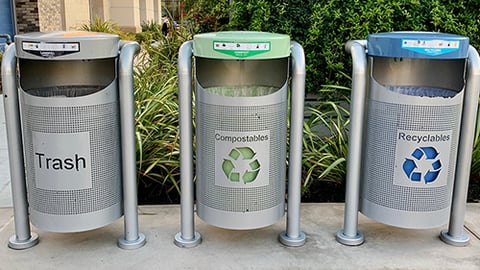Stakeholder Coalition Reveals Recycling Blueprint
The Recycling Leadership Council (RLC), a broad coalition of stakeholders tasked with identifying the federal government’s role in reforming the U.S. recycling system, has issued the “Blueprint for America's Recycling System.” The report lays out policy action to move the United States toward a circular economy.
“Recycling in the United States is at a breaking point due to thousands of disparate systems, and the COVID-19 pandemic has only exacerbated the massive fractures in its foundation,” noted Geoff Freeman, president and CEO of the Arlington, Virginia-based Consumer Brands Association (CBA), which represents the consumer packaged goods industry. “The time is now to solve this crisis, and Americans overwhelmingly want federal leadership. The Consumer Brands Association is proud to convene the Recycling Leadership Council and present its blueprint for how the federal government can be a positive force in modernizing and standardizing recycling across the country.”
“The food industry is actively engaged in finding modern and scalable solutions across the entire recycling ecosystem,” said Andy Harig, VP of of tax, trade, sustainability and policy development at Arlington-based FMI - The Food Industry Association, an RLC member. “It is particularly important we work together to develop goals for sustainable operations, particularly in light of the COVID-19 pandemic, shifting government requirements, material availability and evolving consumer behavior challenging the packaging environment. We look forward to being a collaborative partner of the Recycling Leadership Council.”
The RLC blueprint outlines three areas where the federal government can make a significant difference in the United States’ recycling practices:
- Develop clear data collection and reporting requirements to further understand the problem and shape the creation of a workable system. The RLC noted that a lack of standardized, quantifiable data across the country leaves policymakers clueless.
- Provide national standards and definitions across the nation’s almost 10,000 recycling systems, offering clear guidance to states and municipalities, and simplifying the process for consumers and packaging producers. Through standardization and harmonization, more and different kinds of materials can be collected, processed and sold for value-added products or packaging, according to the coalition.
- Support states with targeted infrastructure investments, tax credits and grants. Funding should go to the systems themselves, such as improving recycling infrastructure or educating consumers.
“Without focused leadership from the federal government, the system will remain fragmented, with waste becoming increasingly unmanageable and hopes for a cleaner, more sustainable future becoming impossible to realize,” said Meghan Stasz, CBA’s VP of packaging and sustainability. “There is a real opportunity for federal legislators to take this consensus, which is years in the making, and put it into actual legislation. These are ideas we can all get behind.”
The various members of the RLC, united by CBA early last year, represent organizations from consumer-facing industries, packaging companies, NGOs and the recycling ecosystem. For the unveiling of the blueprint, the coalition was joined by bipartisan members of Congress, several of which were on hand for the launch of the RLC in January 2020.
One of the Congress members in attendance, Sen. Tom Carper, D-Delaware, chairman of the Senate Committee on Environment and Public Works, observed that “America’s recycling system is not working, especially with respect to plastics. Recycling in our country is in dire need of new policies and solutions. This Congress, I believe that we have an opportunity to work to develop bipartisan, commonsense recycling policies that are good for local communities and our planet.”
“We have an opportunity to improve our nation’s recycling infrastructure and better leverage the economic and environmental benefits of recycling,” said Sen. John Boozman, R-Arizona, co-chair of the Senate Recycling Caucus. “With the help of the Recycling Leadership Council, we continue to examine the best ways to address the challenges facing the recycling industry. I look forward to working together to implement long-term solutions to make recycling easier to help improve our environment.
“Alongside reducing the extraction and consumption of virgin resources and scaling reuse models, recycling plays a critical role in building a more circular economy,” said Kate Krebs, director of industry affairs at New York-based investment firm and RLC member Closed Loop Partners, which is behind the Beyond the Bag Initiative to develop alternatives to the single-use plastic bag. “This comprehensive report is a critical step toward a collaborative approach to transforming the recycling system in the United States, making it more effective and efficient. We need policymakers to act now and make a meaningful shift to a circular model for materials management.”
“Packaging is vital to safeguard our food, protect our medicines, shield our purchases and transport our goods, essentially protecting what keeps us happy and healthy,” said Glen Long, SVP of RLC member PMMI, The Association for Packaging and Processing Technologies, based in Herndon, Virginia. “Because of packaging’s central role in our world, our industry has a responsibility to limit its environmental impact. The 'Blueprint for America’s Recycling System' addresses the critical issue of recycling, by proposing ways to harmonize laws for clearer understanding, allowing consumers to do their part and the government to capitalize on technology and scale.”
“Ocean Conservancy research shows that the United States is the No.1 generator of plastic waste in the world and a top contributor to ocean plastic pollution,” pointed out Edith Cecchini, project director, corporate strategy and policy at the Washington, D.C.-based organization, also an RLC member. “We can and must do better, and strengthening our recycling system right here at home through infrastructure investment and streamlined data collection and reporting are important first steps to solving the global ocean plastics crisis. This report represents voices across sectors, and it is our hope that such a united call for collective action will kickstart the changes America’s waste management system so desperately needs.”
Not everyone was so enthusiastic about the CPG industry-led report’s recommendations, however.
“It should come as no surprise that the association representing the world’s largest plastic polluters wants to double down on individual responsibility and recycling efforts to solve the pollution crisis,” asserted John Hocevar, oceans campaign director for Washington-based Greenpeace USA. “If the Consumer Brands Association wants to be seen as constructive and relevant in discussions about waste, plastic packaging and recycling, it will need to do better than rehashing decades-old ideas that have repeatedly failed. We have moved well past the point where it is useful to simply push for additional studies and public investment to clean up industry’s mess.”
According to Hocevar: “Real solutions start with an honest assessment of the problem, which goes well beyond waste and will require far more than recycling to solve. It is time to abandon throwaway packaging, especially plastics, and incentivize systems of reuse. If industry will not stop using single-use plastic on its own, then government will need to step in.” He went on to note that as yet, the CBA “fails to acknowledge this fundamental reality.”






